
Kawaii
It is not a surprise that Western art has been influenced by Japanese art over the centuries. From the ukiyo-e woodblock prints of the 17th – 19th centuries to modern-day manga, the influence of Japanese art has filtered into the paintings of the Impressionists to modern Pop art. The earlier 19th century phenomenon which came to be known as Japonisme by 1872, saw a sudden rise in the interest of Japanese art after Japan recommenced trade with the West in 1853. As the influence of Japan on Western artists became more widespread, the center of influence shifted from Paris to New York during the birth of modernism. In the decades that followed, Abstract Expressionists found inspiration from the broad strokes of Japanese calligraphy. But the term kawaii, meaning “cute" or “adorable" has its origins in manga. The comic book illustrations and their animated forms (anime) swept across the globe in the 1990s, cementing a new drawing style in popular culture and its role as an influential art form. Though “cute" or “adorable illustration" are not genres that exist in Japanese art, kawaii is a style invented in the West. It refers to the illustration of characters that generate sympathy, have large heads, sparkling, round eyes and chubby bodies. In our selections, the likes of Yoko d'Holbachie and Potchi Moopp depict work in this western style that is inherently Japanese…
Save your search and find it in your favorites
Save your search to find it quickly
Saved search
Your search is accessible from the favorites tab > My favorite searches
Unsaved search
A problem occurred

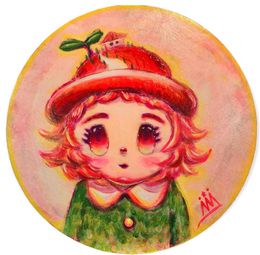
Fantasy Jeju Island - Chunja
Shin Seung-Hun
Painting - 30 x 30 x 3 cm Painting - 11.8 x 11.8 x 1.2 inch
Sold

Fantasy Jeju Island-Chun-Ja Journey Of Happiness
Shin Seung-Hun
Painting - 53.5 x 45 x 3 cm Painting - 21.1 x 17.7 x 1.2 inch
Sold

Fantasy Jeju Island-Chun-Ja Journey Of Happiness
Shin Seung-Hun
Painting - 53.5 x 45 x 3 cm Painting - 21.1 x 17.7 x 1.2 inch
Sold

Bulgarian-soviet friendship
Kokimoto
Painting - 50 x 70 x 2 cm Painting - 19.7 x 27.6 x 0.8 inch
Sold
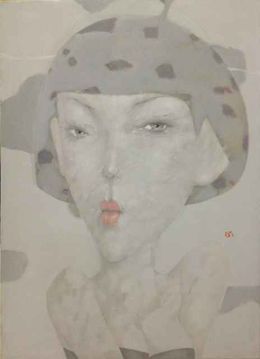

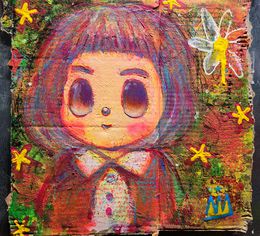
Fantasy Jeju Island, Secret Garden
Shin Seung-Hun
Fine Art Drawings - 35 x 36 x 4 cm Fine Art Drawings - 13.8 x 14.2 x 1.6 inch
Sold

Fantasy Jeju Island - Chunja and Pink rabbit who Went to Space
Shin Seung-Hun
Painting - 50 x 50 x 3 cm Painting - 19.7 x 19.7 x 1.2 inch
Sold
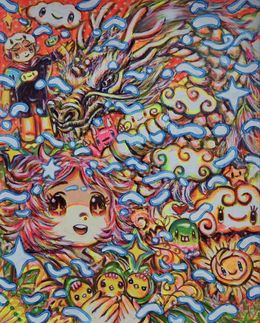
Chunja's Multiverse Story
Shin Seung-Hun
Painting - 72.7 x 60.6 x 3 cm Painting - 28.6 x 23.9 x 1.2 inch
Sold
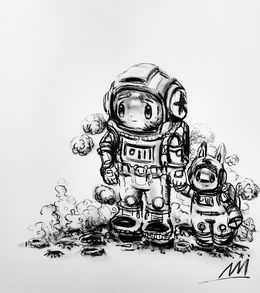
Chunja's multiverse Story-Chunja and the pink rabbit who wants to space
Shin Seung-Hun
Fine Art Drawings - 38 x 31 x 0.1 cm Fine Art Drawings - 15 x 12.2 x 0 inch
Sold

Fantasy Jeju Island, Secret Garden
Shin Seung-Hun
Painting - 72.7 x 52 x 4 cm Painting - 28.6 x 20.5 x 1.6 inch
Sold

Fantasy Jejuisland - Island Girl Story Chun-Ja Healing Garden
Shin Seung-Hun
Painting - 72.5 x 53 x 3 cm Painting - 28.5 x 20.9 x 1.2 inch
Sold
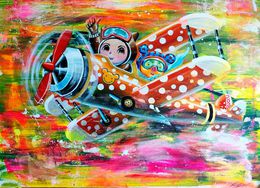
Fantasy Jejuisland - Island Girl Story Chun-Ja Healing Garden
Shin Seung-Hun
Painting - 53 x 72.5 x 3 cm Painting - 20.9 x 28.5 x 1.2 inch
Sold

Fantasy Jejuisland - Island Girl Story Chun-Ja Healing Garden
Shin Seung-Hun
Painting - 41 x 53 x 2 cm Painting - 16.1 x 20.9 x 0.8 inch
Sold

Fantasy Jejuisland - Island Girl Story Chun-Ja Healing Garden
Shin Seung-Hun
Painting - 50 x 50 x 2 cm Painting - 19.7 x 19.7 x 0.8 inch
Sold
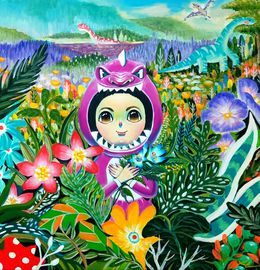
Fantasy Jejuisland - Island Girl Story Chun-Ja Healing Garden
Shin Seung-Hun
Painting - 50 x 50 x 2 cm Painting - 19.7 x 19.7 x 0.8 inch
Sold
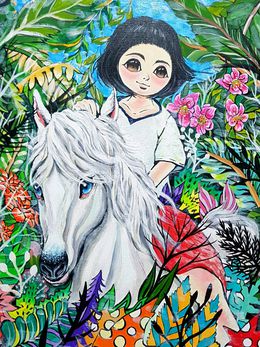
Fantasy Jejuisland - Island Girl Story Chun-Ja’s Journey of Happiness
Shin Seung-Hun
Painting - 60.6 x 45.5 x 3 cm Painting - 23.9 x 17.9 x 1.2 inch
Sold
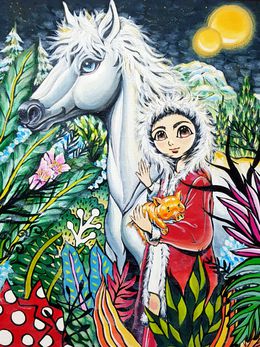
Fantasy Jejuisland - Island Girl Story Chun-Ja’s Journey of Happiness
Shin Seung-Hun
Painting - 60.6 x 45.5 x 4 cm Painting - 23.9 x 17.9 x 1.6 inch
Sold
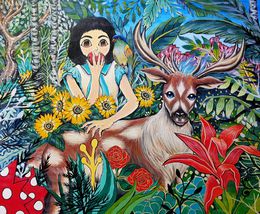
Fantasy Jejuisland - Island Girl Story
Shin Seung-Hun
Painting - 60.6 x 72.7 x 4 cm Painting - 23.9 x 28.6 x 1.6 inch
Sold
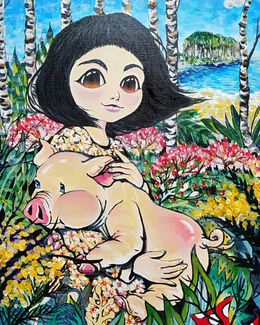
Fantasy Jejuisland - Island Girl Story
Shin Seung-Hun
Painting - 60.6 x 45.5 x 4 cm Painting - 23.9 x 17.9 x 1.6 inch
Sold

Fantasy Jejuisland - Island Girl Story
Shin Seung-Hun
Painting - 53 x 45.5 x 4 cm Painting - 20.9 x 17.9 x 1.6 inch
Sold
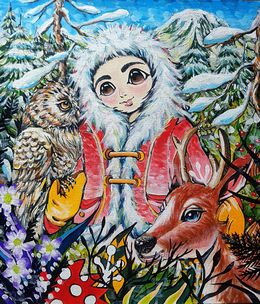
Fantasy Jejuisland - Island Girl Story
Shin Seung-Hun
Painting - 53 x 45.5 x 4 cm Painting - 20.9 x 17.9 x 1.6 inch
Sold
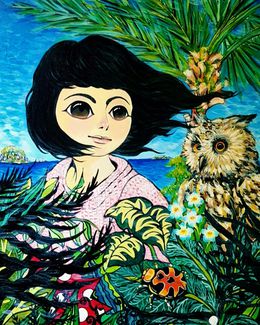
Fantasy Jejuisland - Island Girl Story
Shin Seung-Hun
Painting - 90.9 x 72.7 x 4 cm Painting - 35.8 x 28.6 x 1.6 inch
Sold
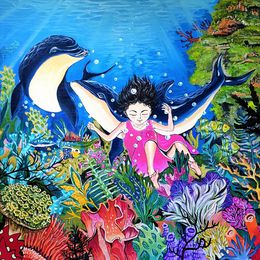
Fantasy Jejuisland - Sea Story
Shin Seung-Hun
Painting - 72.7 x 72.7 x 4 cm Painting - 28.6 x 28.6 x 1.6 inch
Sold

Fantasy Jejuisland - Sea Story
Shin Seung-Hun
Painting - 90.9 x 65.1 x 4 cm Painting - 35.8 x 25.6 x 1.6 inch
Sold

Fantasy Jejuisland - Sea Story
Shin Seung-Hun
Painting - 60.6 x 72.7 x 4 cm Painting - 23.9 x 28.6 x 1.6 inch
Sold

Fantasy Jejuisland - Island Girl Story
Shin Seung-Hun
Painting - 60.6 x 50 x 4 cm Painting - 23.9 x 19.7 x 1.6 inch
Sold
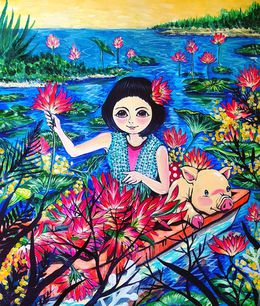
Fantasy Jejuisland - Island Girl Story
Shin Seung-Hun
Painting - 60.6 x 50 x 4 cm Painting - 23.9 x 19.7 x 1.6 inch
Sold
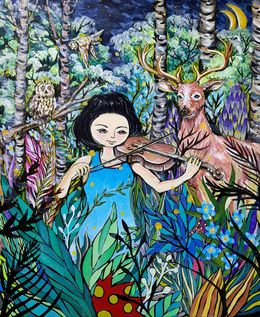
Fantasy Jejuisland - Island Girl Story
Shin Seung-Hun
Painting - 60.6 x 50 x 4 cm Painting - 23.9 x 19.7 x 1.6 inch
Sold
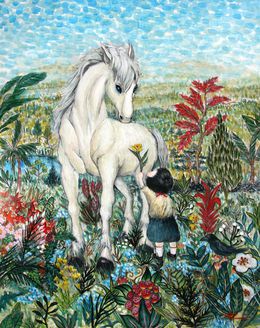
Fantasy Jejuisland - Island Girl Story
Shin Seung-Hun
Painting - 91 x 73 x 4 cm Painting - 35.8 x 28.7 x 1.6 inch
Sold

Chunja's Multiversestory - Chun-Ja World
Shin Seung-Hun
Painting - 65.1 x 53 x 3 cm Painting - 25.6 x 20.9 x 1.2 inch
Sold

Fantasy Jeju Island- Exploring under the sea Chunja and Pink Rabbit
Shin Seung-Hun
Painting - 45.5 x 60.6 x 3 cm Painting - 17.9 x 23.9 x 1.2 inch
Sold
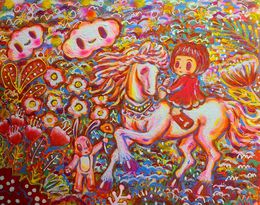
Fantasy Jeju Island, White Martan Chunja And Pink Rabbit With Flowers
Shin Seung-Hun
Painting - 53 x 65 x 3 cm Painting - 20.9 x 25.6 x 1.2 inch
Sold
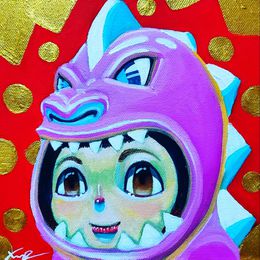
Fantasy Jejuisland - Island Girl Story Chun-Ja Healing Garden
Shin Seung-Hun
Painting - 8 x 8 x 2 cm Painting - 3.1 x 3.1 x 0.8 inch
Sold
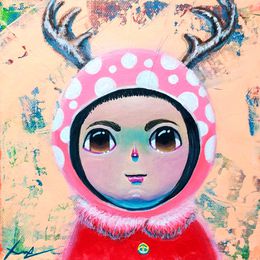
Fantasy Jejuisland - Island Girl Story Chun-Ja Healing Garden
Shin Seung-Hun
Painting - 8 x 8 x 2 cm Painting - 3.1 x 3.1 x 0.8 inch
Sold

Fantasy Jejuisland - Island Girl Story Chun-Ja Healing Garden
Shin Seung-Hun
Painting - 8 x 8 x 2 cm Painting - 3.1 x 3.1 x 0.8 inch
Sold


Healing Greenland, My Neighbour Chunja
Shin Seung-Hun
Fine Art Drawings - 72 x 77.5 x 0.1 cm Fine Art Drawings - 28.3 x 30.5 x 0 inch
Sold

Fantasy Jejuisland - Island Girl Story Chun-Ja Healing Garden
Shin Seung-Hun
Painting - 27 x 27 x 2 cm Painting - 10.6 x 10.6 x 0.8 inch
Sold
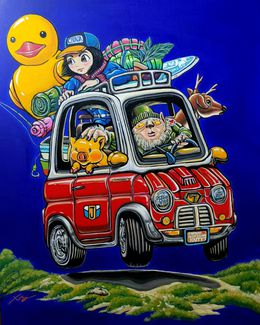
Fantasy Jejuisland- Island Girl Story Chun-Ja’s Journey Of Happiness
Shin Seung-Hun
Painting - 100 x 80.3 x 4 cm Painting - 39.4 x 31.6 x 1.6 inch
Sold
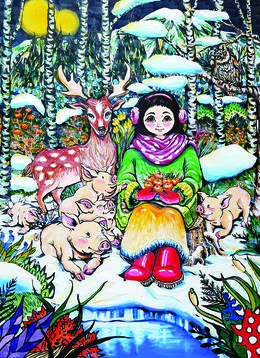
Fantasy Jejuisland- Island Girl Story Chun-Ja’s Journey Of Happiness
Shin Seung-Hun
Painting - 90.9 x 65.1 x 4 cm Painting - 35.8 x 25.6 x 1.6 inch
Sold

Fantasy Jejuisland - Island Girl Story
Shin Seung-Hun
Painting - 130 x 97.2 x 4 cm Painting - 51.2 x 38.3 x 1.6 inch
Sold

Fantasy Jeju Island, Follow Me
Shin Seung-Hun
Painting - 65.5 x 53 x 3 cm Painting - 25.8 x 20.9 x 1.2 inch
Sold
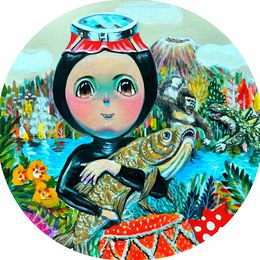
Fantasy Jejuisland - Island Girl Story Chun-Ja Healing Garden
Shin Seung-Hun
Painting - 30 x 30 x 2 cm Painting - 11.8 x 11.8 x 0.8 inch
Sold
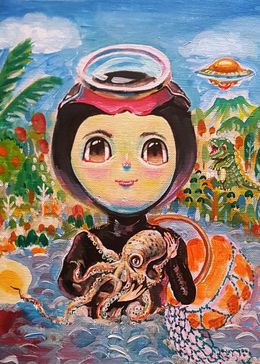
Fantasy Jejuisland - Island Girl Story Chun-Ja Healing Garden
Shin Seung-Hun
Painting - 33 x 24 x 2 cm Painting - 13 x 9.4 x 0.8 inch
Sold

Fantasy Jejuisland - Island Girl Story
Shin Seung-Hun
Painting - 35 x 27.5 x 3 cm Painting - 13.8 x 10.8 x 1.2 inch
Sold
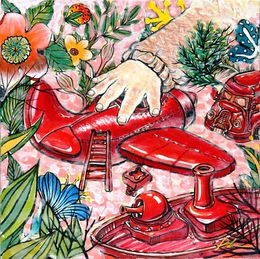
Fantasy Jejuisland - Island Girl Story
Shin Seung-Hun
Painting - 27.5 x 27.5 x 4 cm Painting - 10.8 x 10.8 x 1.6 inch
Sold

Fantasy Jejuisland - Island Girl Story
Shin Seung-Hun
Painting - 27.5 x 27.5 x 4 cm Painting - 10.8 x 10.8 x 1.6 inch
Sold
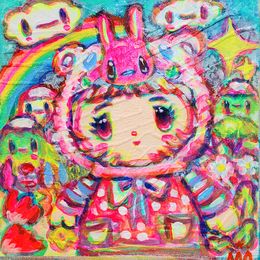
Chunja's Multiverse Story-Chunja and the Pink
Shin Seung-Hun
Painting - 24 x 24 x 3 cm Painting - 9.4 x 9.4 x 1.2 inch
Sold
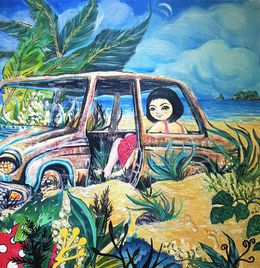
Fantasy Jejuisland - Sea Story
Shin Seung-Hun
Painting - 38 x 38 x 4 cm Painting - 15 x 15 x 1.6 inch
Sold
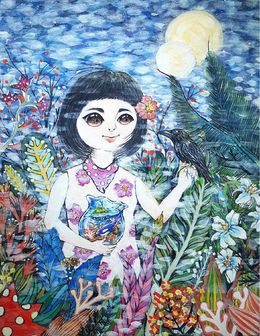
Fantasy Jejuisland - Wind Island Girl Story
Shin Seung-Hun
Painting - 41 x 31 x 4 cm Painting - 16.1 x 12.2 x 1.6 inch
Sold
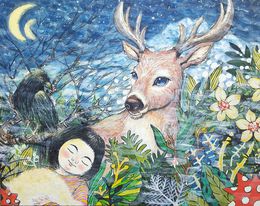
Fantasy Jejuisland - Wind Island Girl Story
Shin Seung-Hun
Painting - 31 x 41 x 4 cm Painting - 12.2 x 16.1 x 1.6 inch
Sold
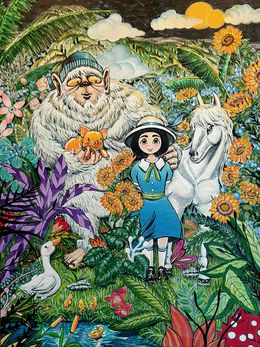
Fantasy Jejuisland- Island Girl Story Chun-Ja’s Journey Of Happiness
Shin Seung-Hun
Painting - 130.3 x 97 x 4 cm Painting - 51.3 x 38.2 x 1.6 inch
Sold
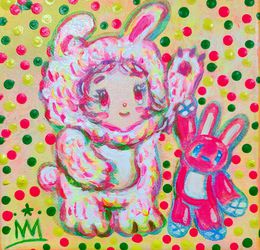
Bunny Chunja and Pink Rabbit
Shin Seung-Hun
Painting - 15 x 15 x 3 cm Painting - 5.9 x 5.9 x 1.2 inch
Sold
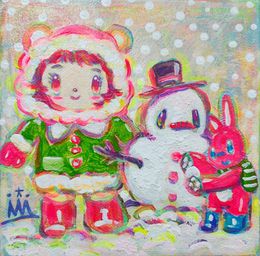
Fantasy Jeju Island - Winter Child Chunja and Snowman
Shin Seung-Hun
Painting - 15 x 15 x 3 cm Painting - 5.9 x 5.9 x 1.2 inch
Sold

Fantasy Jeju Island - Winter Child Chunja and Pink Rabbit
Shin Seung-Hun
Painting - 15 x 15 x 3 cm Painting - 5.9 x 5.9 x 1.2 inch
Sold
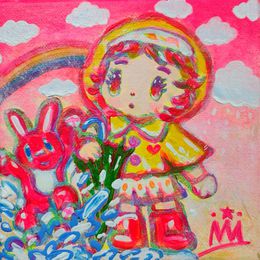
Fantasy Jeju Island - On a rainy day
Shin Seung-Hun
Painting - 15 x 15 x 3 cm Painting - 5.9 x 5.9 x 1.2 inch
Sold
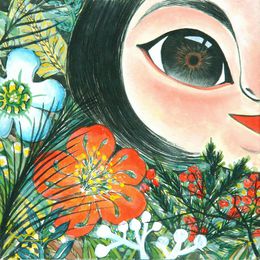
Fantasy Jejuisland - Wind Island Girl Story
Shin Seung-Hun
Painting - 27.5 x 27.5 x 4 cm Painting - 10.8 x 10.8 x 1.6 inch
Sold

Self Wars: Episode I – The Phantom Salary II
Kokimoto
Painting - 15 x 15 x 2.5 cm Painting - 5.9 x 5.9 x 1 inch
Sold

Self Wars: Episode VIII – The Last Become First II
Kokimoto
Painting - 15 x 15 x 2.5 cm Painting - 5.9 x 5.9 x 1 inch
Sold

Self Wars: Episode IV – A New Dope I
Kokimoto
Painting - 15 x 15 x 2.5 cm Painting - 5.9 x 5.9 x 1 inch
Sold

Self Wars: Episode V – The Empire Takes Blow I
Kokimoto
Painting - 15 x 15 x 2.5 cm Painting - 5.9 x 5.9 x 1 inch
Sold

